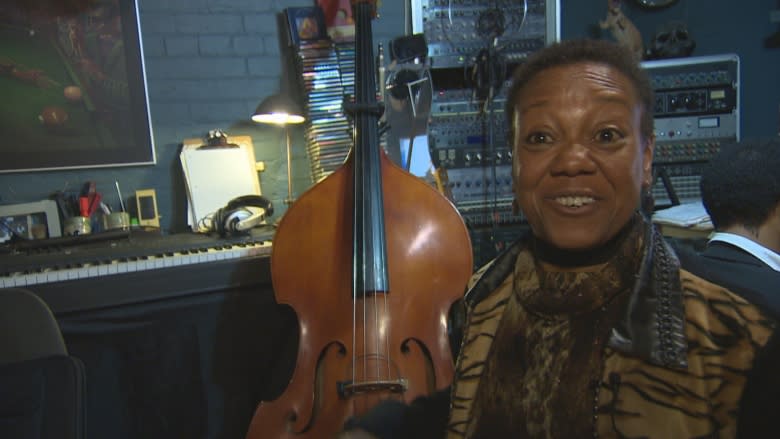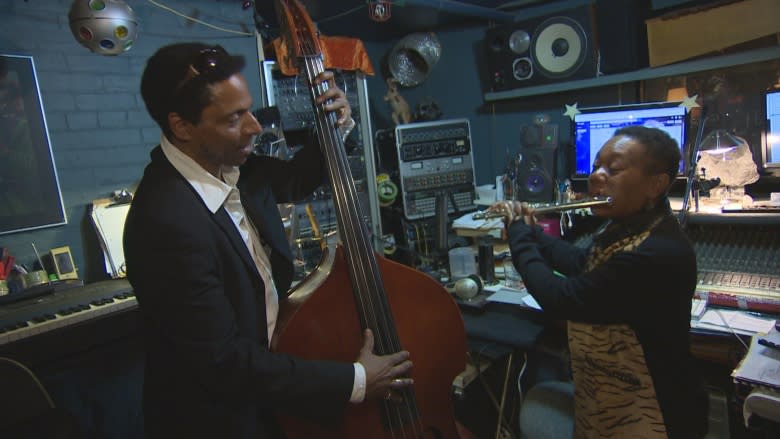Indie recording studio in basement of west-end TCH building ordered out
A unique, independent recording studio operating out of a basement storage unit in a Toronto Community Housing building may be forced out of business after a court decision Thursday ordering its owner to leave.
For decades, B. Musique Productions Studio has been operating out of the basement of a 112-year-old former school at 331 Bartlett Ave. near Dupont and Dufferin streets.
When Bryant Didier moved into the building in 1996, he lived in one unit and began converting the storage space, with its low ceiling and no windows, into a safe place for musicians to create. He built an isolation booth and a wall to separate the recording equipment and console.
"This space represents an affordable place for people to record," said Didier, a musician who has played with Holly Cole, Molly Johnson and other well-known Toronto talent.
"Because my rent has been reasonable here, I can negotiate rates and they can pay what they can."
Tambourines, guitars and keyboards, even a stand-up bass are crammed into the tiny space along with musical posters and paraphernalia detailing decades of Toronto music history.
"I would never be able to record the stuff that I'm recording. I wouldn't be able to afford it at a regular studio," said musician Rene Eryn, who wrote Toronto's Millennium song Toronto 2000 We've Come A Long Way.
Ironically, it was due to Didier's efforts that the 15-unit building came to be part of the TCH housing stock.
"When I moved in it was an artists' hub. A few years later a developer bought the building and wanted to build a condo. At that point in time everything was being gentrified and artists were moving out. And buildings were being turned into condos," Didier said.
He and other artists started a petition to have the city buy the building and TCH acquired the property in 2000 from Cityhomes.
Initially, TCH had no problems with Didier continuing to rent the storage locker for $132 a month and running his studio out of it — even though he was no longer living in the building since he had kids and needed more space.
In February 2015, TCH issued its first notice to Didier to terminate his occupancy under the Commercial Tenancy Act, followed by multiple Notices to Quit — the last dated Sept. 27, 2017. TCH cited legal issues, zoning and safety concerns, including complaints about noise, people entering the building at all times of the day and night and using tenant parking spaces
Didier first took TCH to the Landlord and Tenant Board and finally to Divisional Court, where he filed a motion asking for extra time to challenge the board's decision that his music studio is not a residential apartment.
On Thursday, Ontario Superior Justice Harriet Sachs dismissed Didier's motion and also assigned Didier court costs of $585. He initially had until the end of the month to leave.
In its factum, TCH acknowledged the colourful history of the building and what Didier did there, but pointed out that he no longer lives there and the nature of the building has also changed, rendering it an unsuitable location for a music production studio.
"We have just received the ruling," said Anne Rappe of TCH in an email. "Our next steps are to review the ruling and then discuss the situation with Mr. Didier."
Didier is hopeful something can be worked out with TCH, which does rent commericial space.
Otherwise, without the income from his studio he will not be able to afford the home he and his two boys live in, which is also a TCH property.
"I split my livelihood between playing live and the studio work; it's large part of my income. It supports my children, puts food on the table and keeps a roof over our heads."





